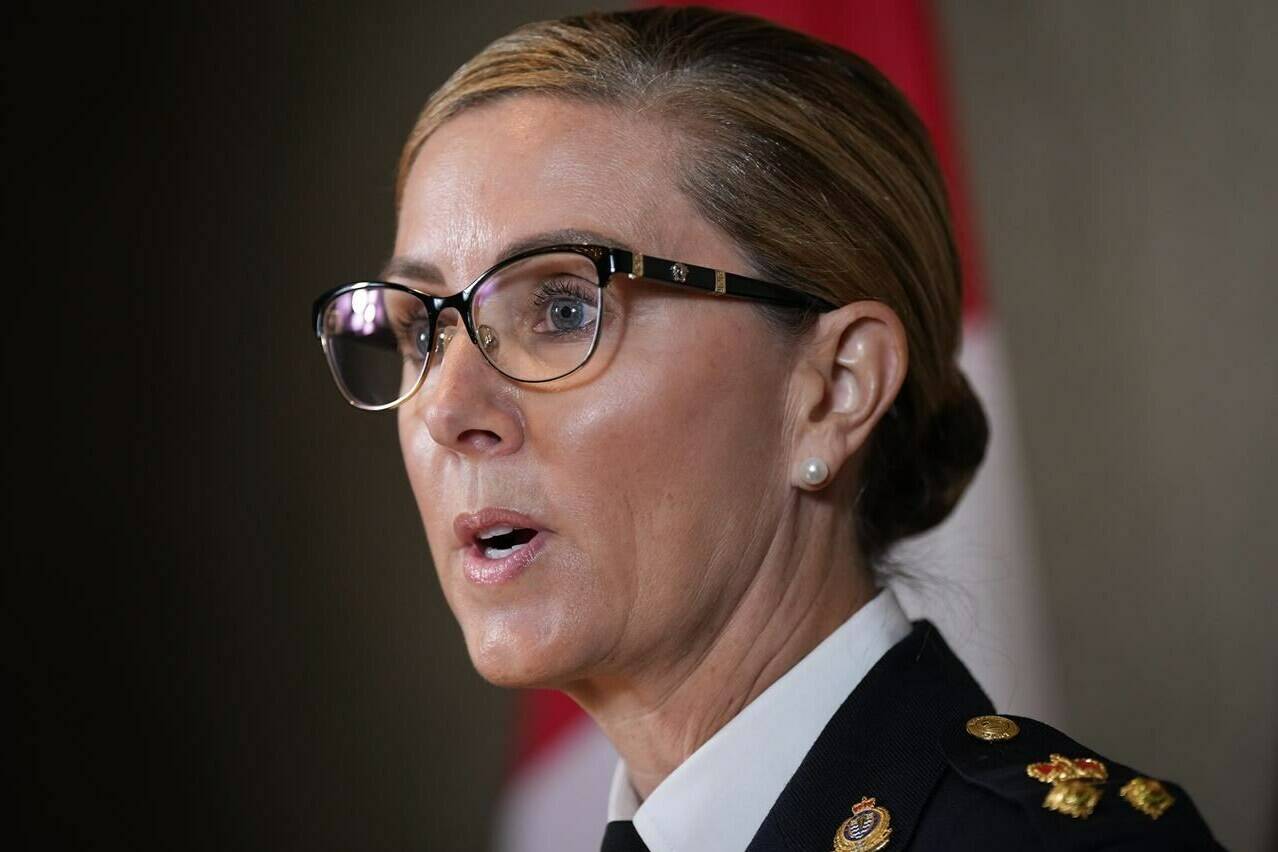A recent court injunction against a law to restrict public drug use in British Columbia denies police a much-anticipated enforcement tool, says a top law enforcement official.
Officers are disappointed with the B.C. Supreme Court decision last week that temporarily blocks the provincial law, Deputy Chief Const. Fiona Wilson of the Vancouver Police Department said Tuesday.
“We supported the act in its current form and appreciated the province making the efforts to address the matter of problematic public consumption that has taken hold since decriminalization,” said Wilson, who’s also president of the B.C. Association of Chiefs of Police and was speaking in that capacity.
“It’s important for us that our police officers have the legal tools to deal with people who are using in those problematic circumstances and we felt that this legislation would assist us to do that,” she said.
The Restricting Public Consumption of Illegal Substances Act was passed by the legislature in November, allowing fines and imprisonment for refusal to comply with police orders not to consume drugs in places including parks, beaches, sports fields and near business entrances and bus stops.
It had yet to come into effect when the injunction was imposed last week by Chief Justice Christopher Hinkson.
Premier David Eby said last fall the legislation was a response to help alleviate public concerns about safety as the province continued with decriminalization programs.
He denied the legislation was a step back from the New Democrat government’s decriminalization agenda, saying people should feel safe in public parks and other areas.
Possession of small amounts of opioids, cocaine, methamphetamine and MDMA, also called ecstasy, was decriminalized in B.C. last January after the federal government issued an exemption to the province to try to stem the overdose death toll.
More than 13,000 people have died in B.C. since the government declared a public health emergency in April 2016 due to illicit opioid overdoses.
Hinkson ruled in favour of an application by the Harm Reduction Nurses Association, imposing a temporary injunction until March 31, pending a constitutional challenge of the law, saying “irreparable harm will be caused” if it comes into force.
Wilson said police in B.C. now have no basis to approach people using small amounts of controlled substances in most public areas unless they are suspected of other criminal behaviour.
“If our police officers come across somebody who is using what appears to be under 2.5 grams of one of the illicit drugs at those locations, in the absence of other criminal behaviour, we have absolutely no grounds to approach that person and ask them to leave,” she said.
“That’s what this act was going to address. Our officers, currently in the absence of no other criminality, have no lawful authority to approach someone under those circumstances if they are using illicit drugs.”
Wilson, who has patrolled Vancouver’s Downtown Eastside, said most people keep their drug use away from children, but police were looking to the B.C. law to assist them in “rare” instances when it would be required to check people in public places.
Public Safety Minister Mike Farnworth said last week the government was “concerned” by the ruling against laws he said were meant to prevent drug use “in places that are frequented by children and families.”
READ ALSO: B.C. Supreme Court blocks new law against public drug use

